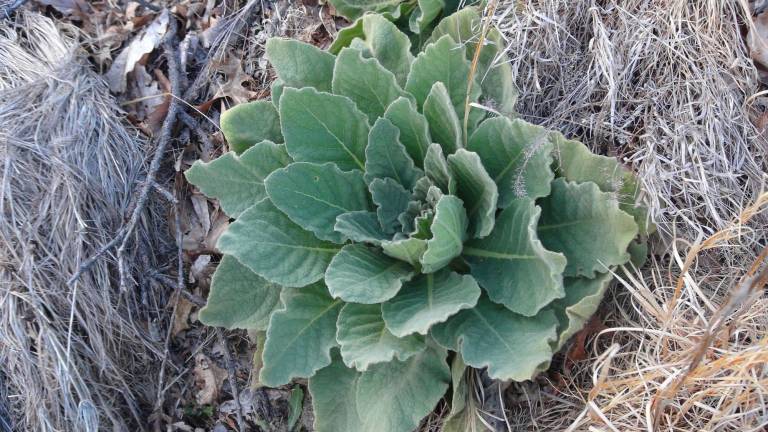One of the softest plants alive

Mullein grows throughout the world, and it’s almost unmistakable to the touch. The leaves are soft and delicate and inviting to caress.
Best known as a respiratory herb, the leaves can be harvested at any time of the plant’s two-year growth cycle, and dried for tea, or smoke, which helps the lungs process out grief, anxiety, and excess mucous. It is astringent so tends to dry out mucous membranes. It’s not always the right remedy, depending on your particular lung condition or need. Sometimes the respiratory system needs drying, sometimes moistening, and there are herbs for both.
The entire plant does contain saponin, particularly the roots. There is some general concern over saponin, which, in concentration, starves cells of oxygen. Indigenous cultures will sometimes make use of this characteristic, pounding roots, damming up a stream, and sopping the saponin-rich roots in the stream. This causes the water to lose oxygen, and the fish come to the surface for easy harvest. When we eat saponin-rich foods such as quinoa, that’s why it is important to soak and rinse before consuming.
Yet the mullein root also has a medicinal application for respiratory and digestive complaints. As it is said, the difference between medicine and poison is in the dose. Mullein root is known to stop respiratory spasm (coughing) and perhaps the saponin is part of its medicinal action. But you wouldn’t necessarily drink root tea for more than a week straight.
The leaves can be made into a drink, and since they are astringent, it can also be used as a wash for poison ivy, bug bites, chiggers, hives, or chicken pox. The dead, dried flower stalk is my preferred hand drill for fire making, and for thousands of years our ancestors dipped the stalk in fat and/or wax to use as a candle.
The flowers, delicately collected, can be made into an infused oil for ear infections and can also be applied topically to calm irritated skin.
Plus, being soft to the touch, mullein leaves make a great compostable toilet paper.
Dan De Lion